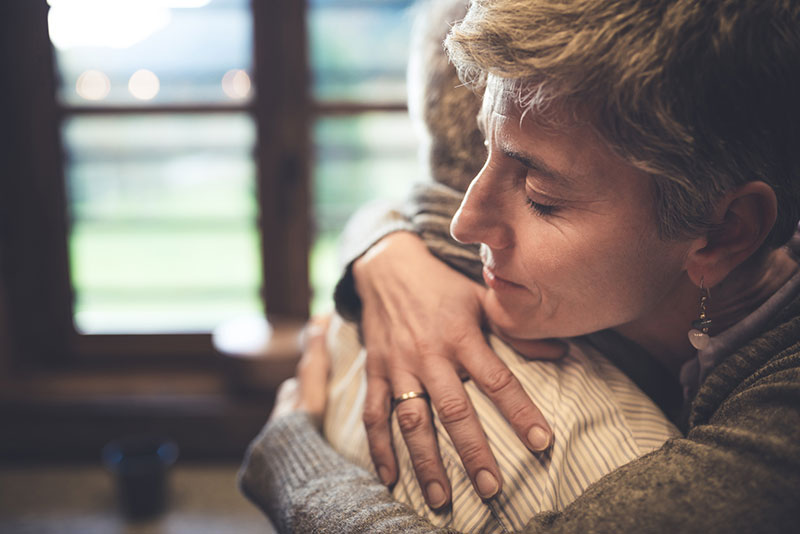
Dealing with the death of a loved one brings grief and a number of tasks that must be completed.
When an elderly parent passes away, there are a number of legal and personal details that must be addresses. Knowing what to do and where to begin can be challenging when dealing with death and navigating grief. To help alleviate some of the stress during this time, our home care professionals have created the following guide so you will know exactly what should be taken care of when someone you love passes away.
Step One: Right Away
- Acquire a declaration of death. Depending upon the person’s location at the time of passing, this could be given by a hospice nurse, or staff in a hospital or long-term care facility. If you are taking care of the individual in the home without the support of medical experts, call 911. EMTs will provide transportation to the hospital for a legal pronouncement of death.
- Notify family and friends. There are several approaches to make this happen, depending on what’s most comfortable for you. You might want to personally get in touch with each individual through a telephone call, email, or in-person visit. You may want to ask for assistance, designating others to contact a certain group of people (i.e., faith community members, friends from organizations the person was involved in, neighbors, etc.) to help spread the news. Or you may choose to post on social media, enabling you to make one statement that reaches everyone in the person’s circle of contacts.
- Organize a meeting with immediate family to discuss funeral arrangements. If the senior had prepaid/preplanned final arrangements, you’ll be able to review those plans with immediate family. If not, you can begin the conversation about preliminary information: which funeral home you would prefer to use, the budget available, and any high-level details you want to be certain to include.
Step Two: Within 2 or 3 Days of Passing Away
- Finalize funeral plans. Utilizing the details from your initial family gathering, meet with the funeral home staff to sort out the particulars:
- Will the individual be cremated or buried?
- Which kind of casket or urn will you want?
- Where will the service take place?
- Who will write the obituary? Act as pallbearers? Speak at the service? Handle thank-you notes? Plan for a post-funeral gathering?
- Make sure the property and any valuables are safe. Lock up any cash, jewelry, or other precious items, as well as the person’s house and vehicle. Additionally, if the person had any pets, determine who can take over ownership – ensuring they receive lots of care and attention, as they will be impacted by the loss and adjustments too.
- Forward mail. The post office can set up a forwarding order so the senior’s mail will be sent straight to the appropriate person handling their affairs. The designated person will want to monitor mail to end subscriptions and services, manage any bills, etc.
Step Three: 2 Weeks After Passing
- Pull together paperwork. Ask for ten certified copies of the death certificate, which will be needed to file insurance claims, close bank accounts, and more. The funeral home can assist you with this, or you can request them yourself from the state vital records office. You’ll also need to locate the person’s will and determine who the executor is.
- Meet with an attorney and CPA. Legal counsel, chosen by the executor, will ease the job of resolving the estate and dispersing assets. A CPA can help with filing a final tax return on the person’s behalf.
- Notify other businesses. The funeral home should speak to the Social Security Administration, but you will want to confirm this. In addition, if the person had a life insurance plan, now is the time to file a claim. Check with the senior’s bank(s), stockbrokers, and financial advisers to find out who the beneficiary of each account is and offer a copy of the death certificate. You will also need to close any credit card accounts and get in touch with the Department of Motor Vehicles to deactivate their driver’s license.
When an elderly parent dies, there is often a surviving spouse who needs care and support. Grace Home Care. a provider of expert Topeka dementia care and home care, can help. Our caregivers can help plan and prepare nourishing meals, offer friendly companionship, assist with personal care needs, and much more. Let us help so you can focus on the details following a loved one’s passing. Call us today at 785-286-2273 to find out more about our in-home care services.
